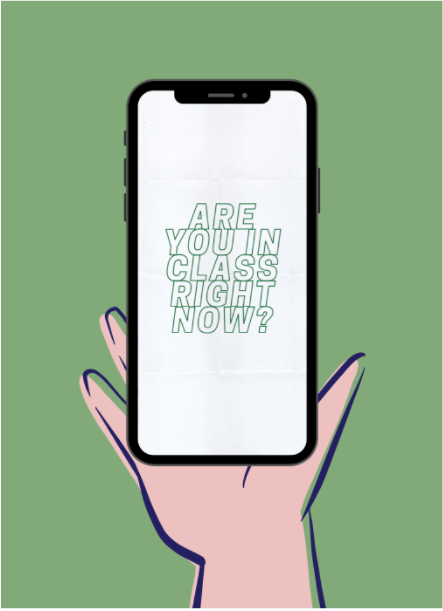
The term “doom-scrolling” has been a buzz-word for the last few years— it doesn’t have an actual definition yet but, according to Merriam Webster, it’s on their list of “words to watch,” or words that being heavily used but don’t quite meet the criteria for entry into the dictionary. The current definition of doom-scrolling on their site is “the tendency to continue to surf or scroll through bad news, even though that news is saddening, disheartening, or depressing.” Sound familiar?
There’s something addicting about scrolling through social media and interacting with negative content. That’s not an accident. If you watched the 2020 documentary drama, Social Dilemma, you’ll sort of have an idea of what that means. These apps–Twitter, Instagram, Facebook, etc.– are built to keep you interested and have spent years perfecting algorithms to do so. The film interviews Silicon Valley tech-giants that were present for the conception of these apps and algorithms and are now turning against the monsters of information that they’ve created. Tim Kendall, former president of Pinterest, even admits that he doesn’t let his children anywhere near social media because he’s so afraid of the negative effects users are impacted by. It’s a very Dr. Frankenstein and the Creature sort of experience for all of the interviewees. The film explains the techniques used by social media companies to addict their users and the actual psychological practices utilized to achieve users’ doom-scrolling. (They also talk about the way we’re tracked and our data is sold but that’s a totally different and equally horrifying article).
CNN reported mid-pandemic that screen-time (only including time spent on a phone) for the average American had jumped up to four hours a day in 2020 from three hours in 2019. Remote learning and working, according to the study, was the main reason for the increase in time people spent staring at a screen. People are doom-scrolling for hours at a time, whether it’s on Instagram or Twitter or Facebook.
I’d like to apply this term, “doom-scrolling,” to a specific scenario that’s extremely relevant to Illinois Wesleyan students. Have you ever caught yourself “zoom-scrolling?”
You’re halfway through a two-hour lecture and you realize that you’ve been on Twitter for the past hour and have literally no idea what your professor is talking about. Your notebook is blank and you don’t remember the last time you looked up from your phone to your laptop. Somehow, you spent an entire hour of class reading threads about how people are being scammed into getting faux COVID-19 vaccines and your mood is considerably worse. Or you’re three years deep on the profile of an Instagram influencer who you really don’t care about. And all of the sudden, class is over and you couldn’t recount any of the last two hours of information.
The ability to spend even more time on our phones has been handed to us with a bow in the form of zoom classes. Instead of sitting at a desk in a classroom where it’s generally looked down upon to have a phone out, we’re sitting on our beds with our cameras off and phones in hand. The ability to zoom-scroll is so easy that I can’t believe it when I make it through a whole class without tuning out to check Snapchat.
Tuning out of class for a while to scroll doesn’t seem like the end of the world. But we’re participating in a money-making machine for these companies that don’t care about their users well-being and have no reason to. The longer we scroll, the more classes we stop paying attention during, the more money the apps make. And we’re not any better for it either. Social media and the constant intake of news has long been connected to depressive feelings and changes in self-esteem. But we’re also paying tuition (a modest $60,000 at Illinois Wesleyan) to sit in our remote classes, and spending $60,000 to feel worse and learn less because of this zoom-scrolling.
I promise I’m not on my high horse because I struggle with this just as much as everyone else. So my challenge is to put your phone down during class because you will feel better. Twitter and Instagram will survive— but will your grades? Will your mental health?
